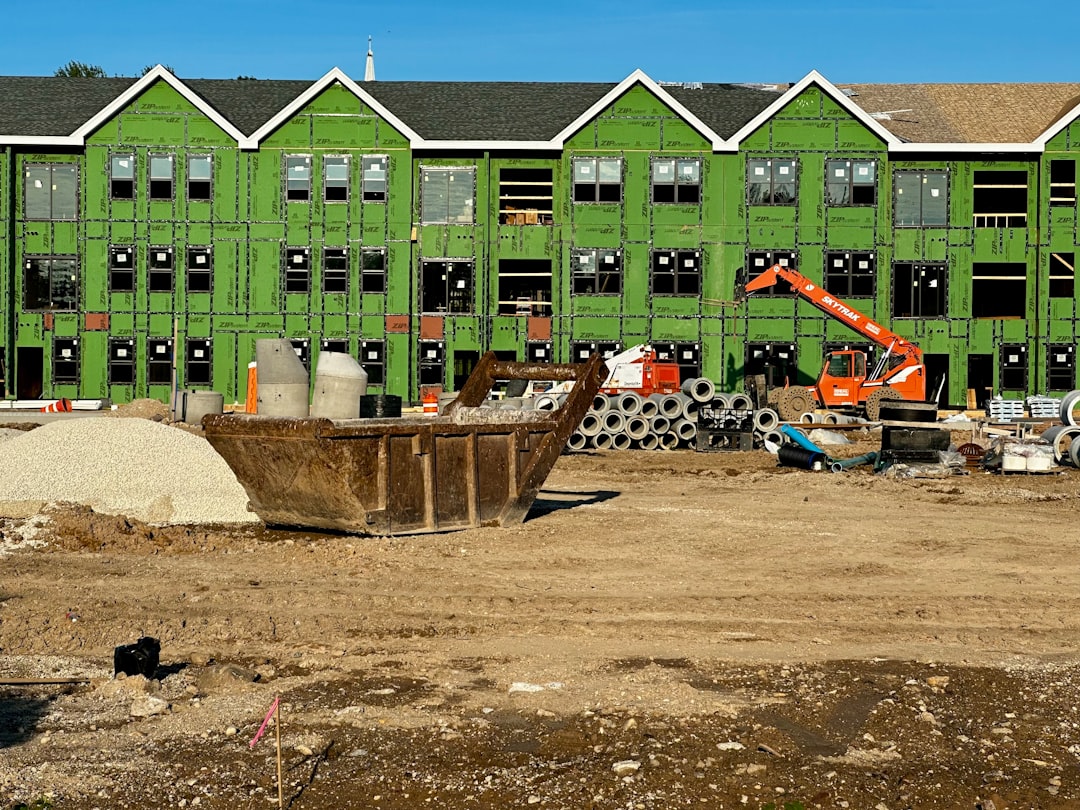CountBricks: Composting in Houston for Residential Projects
Construction Cost Overview – Houston
Price source: Costs shown are derived from our proprietary U.S. construction cost database (updated continuously from contractor/bid/pricing inputs and normalization rules).
Eva Steinmetzer-Shaw
Head of Marketing
Composting in Houston: A Residential Construction Guide
Integrating composting solutions into residential construction in Houston can significantly reduce environmental impact and enhance project value. With costs ranging from $1,400–$2,800 per composting toilet installation, understanding the financial and regulatory landscape is crucial. CountBricks, an AI-driven estimating platform, supports contractors in achieving code-compliant, budget-friendly composting projects.
Why Composting Is Trending in Houston Homes
- Year-round warm weather accelerates organic decomposition, making composting highly efficient.
- Rising municipal disposal fees motivate homeowners to divert food scraps and yard waste.
- Local incentives reward builders who meet green building standards that include waste-reduction strategies.
- Increased demand for drought-resilient landscapes pairs perfectly with compost-rich soils.
Houston Building Codes and Composting Compliance
Residential composting must adhere to city and county regulations. Key considerations include:
- Setback and odor requirements for exterior compost bins.
- Mechanical ventilation and leachate containment rules for composting toilets.
- Floodplain restrictions affecting below-grade compost pits in certain neighborhoods.
CountBricks' estimating engine flags code-sensitive items and adds correct permit fees, helping contractors avoid costly revisions. For detailed code guidance, visit CountBricks.com.
Cost Factors and How CountBricks Streamlines Bids
Traditional composting project quotes can be cumbersome. CountBricks simplifies the process with:
- Voice-capture site briefing
- Instant material catalog matching local suppliers
- AI takeoffs layered onto uploaded blueprints
- Auto-generated, client-ready quote PDFs
Our database updates labor averages and material pricing daily, ensuring your composting line items remain current.
Designing Compost-Friendly Homes
Integrating composting at the architectural stage maximizes efficiency and aesthetics. Recommendations include:
- Locating exterior bins within 30 feet of the kitchen for easy scrap transfer yet outside prevailing wind paths.
- Specifying insect-resistant hardwoods or recycled HDPE for bin enclosures to handle Houston's humidity.
- Adding a dedicated electrical circuit for thermostatically controlled composting toilets.
- Sloping adjacent patio slabs 1/8 inch per foot away from bins to direct runoff.
With AI-powered takeoffs, these features become measurable quantities fed directly into your CountBricks estimate.
Step-by-Step: Using CountBricks AI for a Composting Estimate
- Log in to your dashboard and start a new residential project.
- Dictate “backyard two-stage compost bin, cedar” or “Sun-mar Excel toilet, master bath remodel” during the voice walkthrough.
- Upload your PDF plans; CountBricks highlights bathrooms, service walls, and exterior corners where composting components will connect.
- Review the AI-generated line items—labor hours, hardware kits, moisture barriers, inspection fees—already tagged with Houston market pricing.
- Click “Generate Quote” to deliver a branded proposal your client can e-sign.
Real-World Savings: A Houston Heights Case File
A recent CountBricks client retrofitted a 1920s bungalow with a compact composting toilet and cedar slat bin. Traditional bids ranged from $2,100–$3,400. Our AI estimate landed at $2,750, itemized every inspection, and prevented a $1,450 change order by flagging the home’s floodplain status on day one. Construction wrapped five days early, and the homeowner diverted an estimated 700 pounds of organic waste in the first year.
Advantages Beyond Budget Control
- Marketing edge: Energy-conscious buyers favor builders who showcase composting expertise.
- Reduced job-site waste: Scrap lumber shavings can feed on-site bins instead of dumpsters.
- Healthier soils: Finished compost nourishes landscape beds, decreasing irrigation demand.
- Tax incentives: Some Harris County programs offer rebates for water-saving landscaping fed by compost.
Common Misconceptions—And CountBricks Insights
- “Composting toilets smell.” Proper venting, included in every CountBricks materials list, eliminates odor.
- “Houston clay soils won’t benefit.” Compost improves clay structure, enhances drainage, and moderates temperature swings.
- “Permitting takes forever.” Our permit-tracking module assigns realistic durations, so schedules stay accurate.
Next Steps for Houston Builders
Composting in Houston is a proven feature that boosts home value and sustainability. Whether you need a quick retrofit estimate or a full-scale green build package, CountBricks delivers speed, precision, and unmatched local knowledge. Start a free demo or request a project consultation at CountBricks.com.
Case Study Spotlight: Midtown Loft Remodel with Integrated Composting
When architect Maria Diaz approached CountBricks about modernizing a 1,100 sq ft Midtown loft, sustainability topped her priority list. The project combined a compact balcony garden, interior composting toilet, and a concealed worm bin that diverted kitchen scraps. Traditional estimators struggled to reconcile specialty fixtures with Houston’s multi-family plumbing codes, projecting a 14-week timeline.
How CountBricks Accelerated Delivery
- Rapid takeoff: Our AI detected non-bearing CMU walls from the PDF and suggested a low-profile vent chase that preserved ceiling height.
- Live pricing: Daily updates shaved 6% off PVC fittings by leveraging a regional distributor discount.
- Integrated scheduling: The permit-tracking module forecast a six-day approval window because the building already held a Master Occupancy certificate—information that manual bids ignored.
Results
The remodel wrapped in 10 weeks—nearly a month ahead of traditional estimates. Labor savings totaled $4,800, and the tenant association proudly reports cutting organic waste pickups by half. Maria now includes a “Powered by CountBricks” badge on every proposal she sends, citing the platform’s clarity and speed.
Pro Tips from the Field
- Position balcony worm bins on the north side to reduce Houston’s summer heat stress.
- Use removable magnetic panels for vent chase access—simpler inspections, cleaner aesthetics.
- Offer clients a maintenance schedule in the handover package, generated automatically through CountBricks checklists.
Whether you’re remodeling a Heights bungalow or designing a downtown high-rise condo, CountBricks empowers you to weave composting in Houston into any residential scope—fast, compliant, and cost-effective. Connect with our experts at CountBricks.com to start your own success story.

